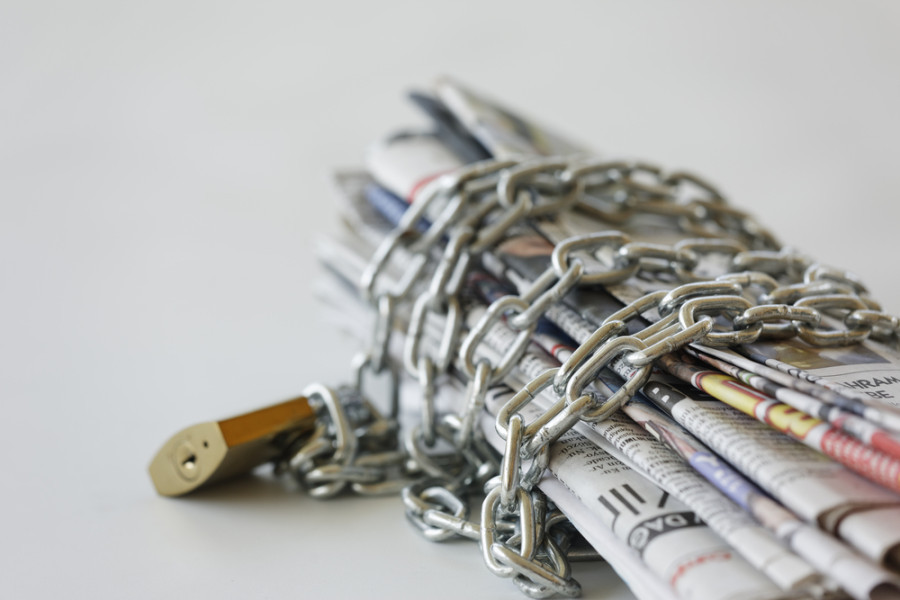Editorial
Slippery slope
Those who believe in free speech and democracy must speak up against efforts to gag the press.
Nepal may boast of having the ‘freest’ media in South Asia, but the country’s media fraternity and free speech are under increasing threat. Recently, the Kathmandu District Court issued a directive asking two online media outlets—Bizmandu.com and Nepalkhabar.com—‘to remove published news reports, labelling them “unverified and baseless,” and refrain from publishing similar content that could cause “irreparable damage” to the petitioner’. The court also issued an arrest warrant for journalist Dil Bhusan Pathak under Section 47 of the Electronic Transactions Act over a video report on the Hilton Hotel involving Jaiveer Singh Deuba, son of Nepali Congress President Sher Bahadur Deuba and Minister for Foreign Affairs Arzu Rana Deuba.
Journalists and the work they do can (and sometimes do) have flaws, but detaining them and insisting on removing content—without allowing any opportunity for a hearing, dialogue, or debate—is a clear violation of the country’s press freedom. Since the early 2000s, successive governments have tried to stifle press freedom. In such a situation, the judiciary becomes the last hope to uphold free speech. Yet, in these recent cases, this body has failed to uphold the constitutional provision for “full freedom of the press” guaranteed in the preamble of the constitution. Its arbitrary rulings also put working journalists in danger.
The intent to regulate anti-government narratives is also reflected in the controversial Social Media Bill introduced in Parliament earlier this year. Particularly problematic is Clause 18, which states that “any individual who posts or shares content on social media that disturbs the sovereignty, geographical integrity, national unity and security of Nepal will be imprisoned for up to five years or fined up to Rs500,000 or both.” This provision can, for instance, be used to threaten media outlets that are vocal against corruption and misgovernance. Concomitantly, the Media Council Bill, which replaces the existing Press Council and stipulates a chairperson appointed by the government to oversee the council, to regulate media conduct and ensure compliance with media ethics, could also allow the government to exert more control over the press.
Those in power have also gone so far as to wage a personal vendetta against media personnel and news outlets. These actions have already hit the country’s image as a beacon of free press. Now, it ranks 90th out of 180 in the World Press Freedom Index published by Reporters Without Borders (RSF), a Paris-based global press freedom organisation, with a score of 55.20—having stood at 74 only in 2024.
Journalists and media stakeholders also have the responsibility of upholding the sanctity of the press, adhering to media ethics and disseminating fact-based information. But most importantly, a democratic state should never clamp down on freedom of expression, while the judiciary must provide ample space for hearing and dialogue. We have already seen the grave consequences of muzzling free press, even in our neighbourhood, mostly recently in Bangladesh, where the draconian digital laws launched in 2018 helped bring people’s pent-up anger to the surface. Free speech acts as a thermostat that helps maintain social order by allowing peaceful expression of such anger and frustration. Everyone who believes in free speech and democratic rights must speak up against these latest efforts to gag the press in Nepal—if not, it could be a slippery slope to the establishment of a controlled society. In this spirit, the judiciary would also do well to reconsider its latest verdicts.




 9.7°C Kathmandu
9.7°C Kathmandu














